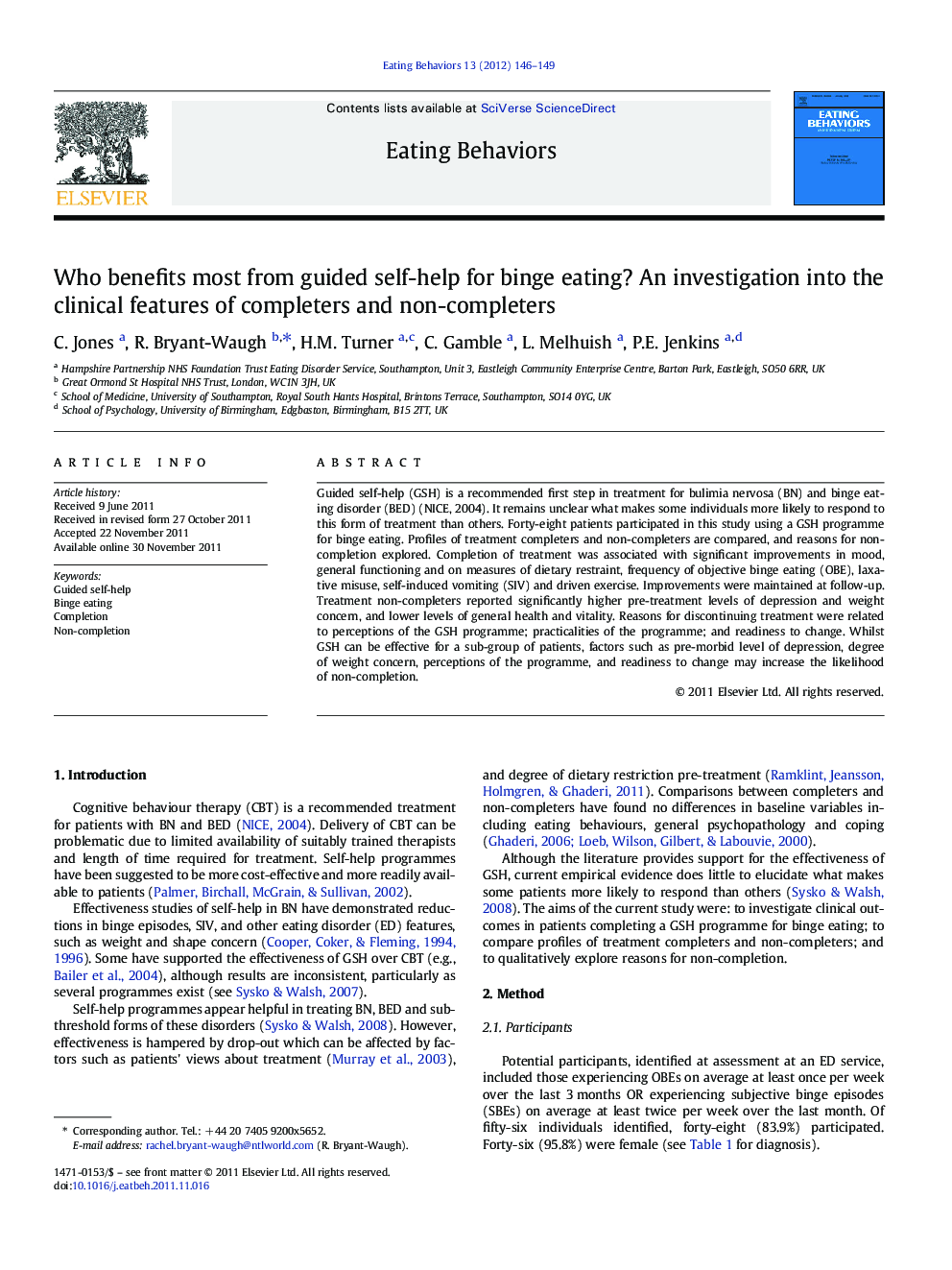| Article ID | Journal | Published Year | Pages | File Type |
|---|---|---|---|---|
| 906695 | Eating Behaviors | 2012 | 4 Pages |
Guided self-help (GSH) is a recommended first step in treatment for bulimia nervosa (BN) and binge eating disorder (BED) (NICE, 2004). It remains unclear what makes some individuals more likely to respond to this form of treatment than others. Forty-eight patients participated in this study using a GSH programme for binge eating. Profiles of treatment completers and non-completers are compared, and reasons for non-completion explored. Completion of treatment was associated with significant improvements in mood, general functioning and on measures of dietary restraint, frequency of objective binge eating (OBE), laxative misuse, self-induced vomiting (SIV) and driven exercise. Improvements were maintained at follow-up. Treatment non-completers reported significantly higher pre-treatment levels of depression and weight concern, and lower levels of general health and vitality. Reasons for discontinuing treatment were related to perceptions of the GSH programme; practicalities of the programme; and readiness to change. Whilst GSH can be effective for a sub-group of patients, factors such as pre-morbid level of depression, degree of weight concern, perceptions of the programme, and readiness to change may increase the likelihood of non-completion.
► Clinical outcomes are reported for guided self-help treatment. ► Completers and non-completers are compared and reasons for non-completion explored. ► Completers reported improvements in ED symptoms, mood and general functioning. ► Non-completion associated with depression and weight concern at baseline. ► Readiness to change was linked to non-completion.
